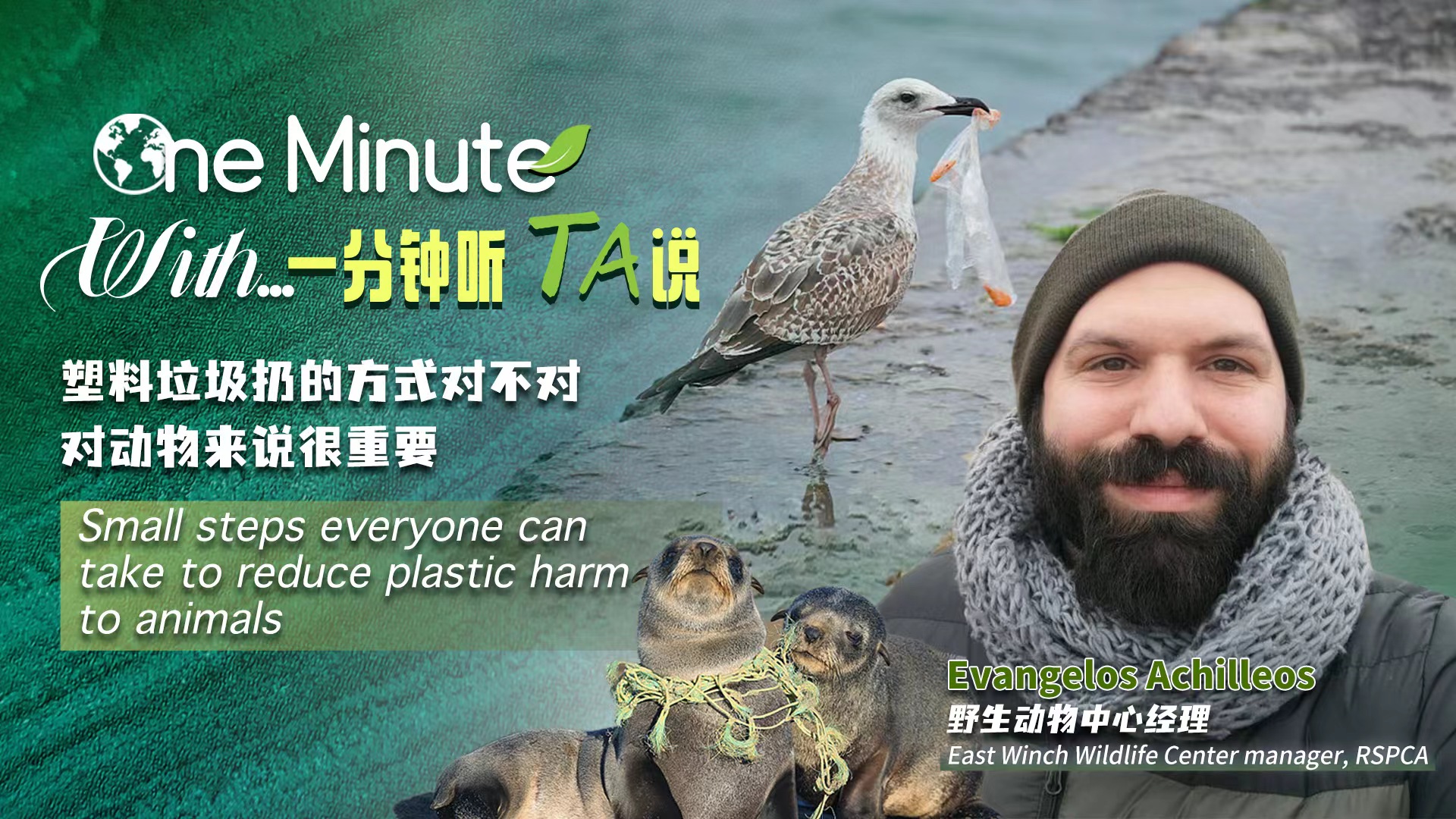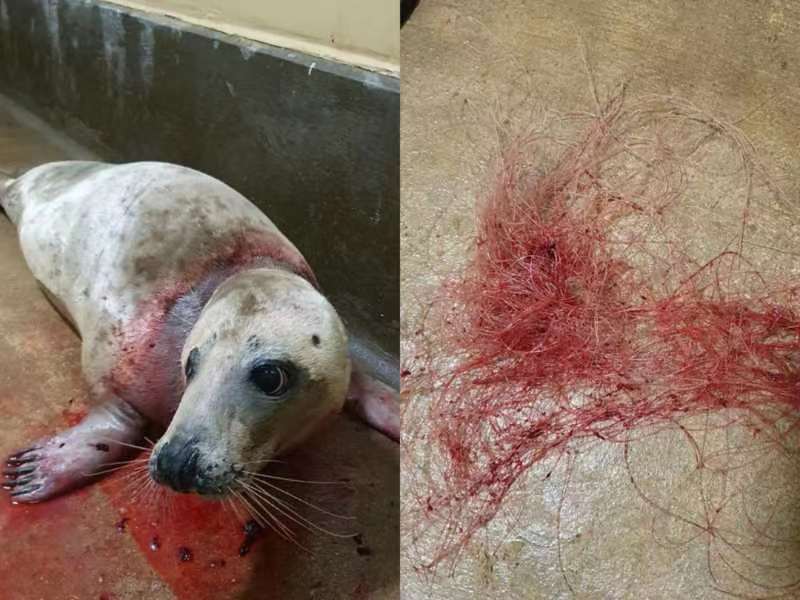01:11

Did you just toss your mask into a bin after rolling it into a ball? Did you just throw cans, leaving them wide open? Actually, what you've done is wrong.
Evangelos Achilleos, manager of the RSPCA East Winch Wildlife Center, shared with us the correct ways to dispose the waste masks and cans before they were thrown into garbage bins.
"It's really good to crush the opening because if you don't, unfortunately, the animal can get their heads caught in here when they just sniff for food," he explained.
Regarding the masks, he said "break the loop" is the simplest thing we can do to avoid birds and small animals wrapped by the loops.

Ursula, a 4-year-old gray seal, is rescued from nets entanglement. /courtesy of RSPCA East Winch Wildlife Center
Ursula, a 4-year-old gray seal, is rescued from nets entanglement. /courtesy of RSPCA East Winch Wildlife Center
Not only are waste cans and masks deadly threats to animals, the fishing nets not been disposed properly are also a potential harm to them.
The nets made up of monofilaments are super thin and not elastics so that they can easily cut into animals' flesh, such as seals. Therefore, it is vital that the nets are dumped appropriately.
For more
World Environment Day: Scars of plastic
Birds getting sick after eating plastics so common it's now a disease
Birds have stomachs flushed to clear plastics – and often they still die
About 'One Minute With' series
CGTN Nature talks to experts from across the world about life-changing environmental issues, such as climate change, plastic pollution and biodiversity loss, and learns about possible solutions. "One Minute With" features the interview highlights into short videos to get to the heart of the argument fast. For in-depth discussions on each topic, stay tuned for our Environment Buzzword series!
(Cover image designed by CGTN's Xing Cheng; video edited by CGTN's Yang Yiren)
(If you want to contribute and have specific expertise, please contact us at nature@cgtn.com.)